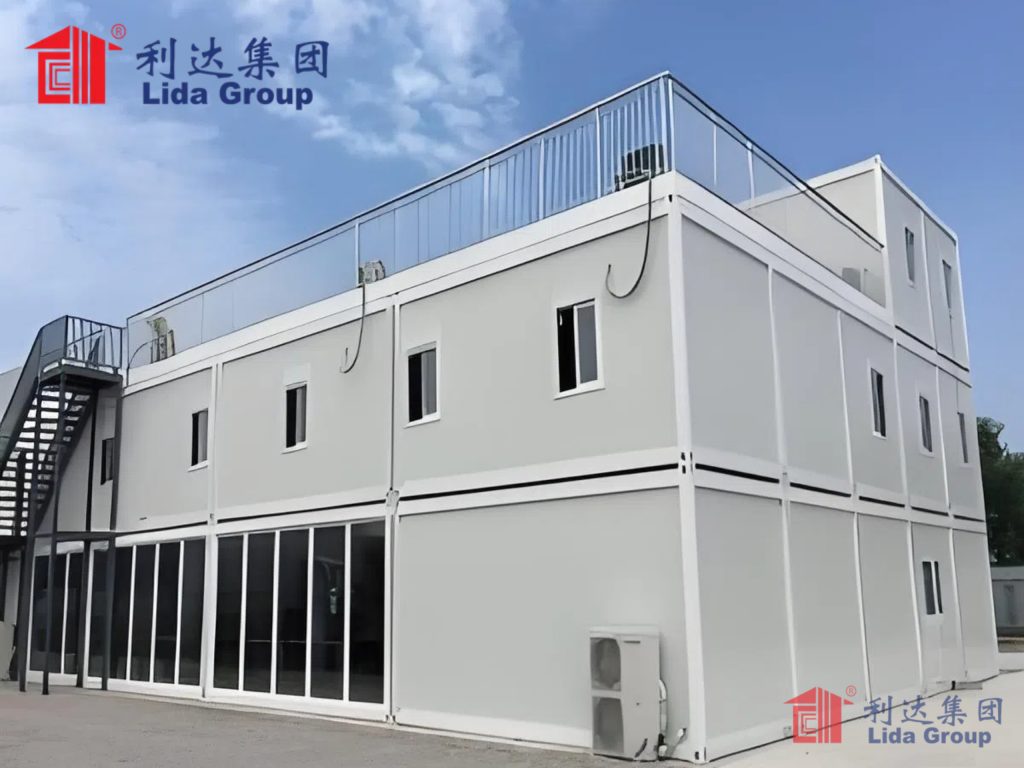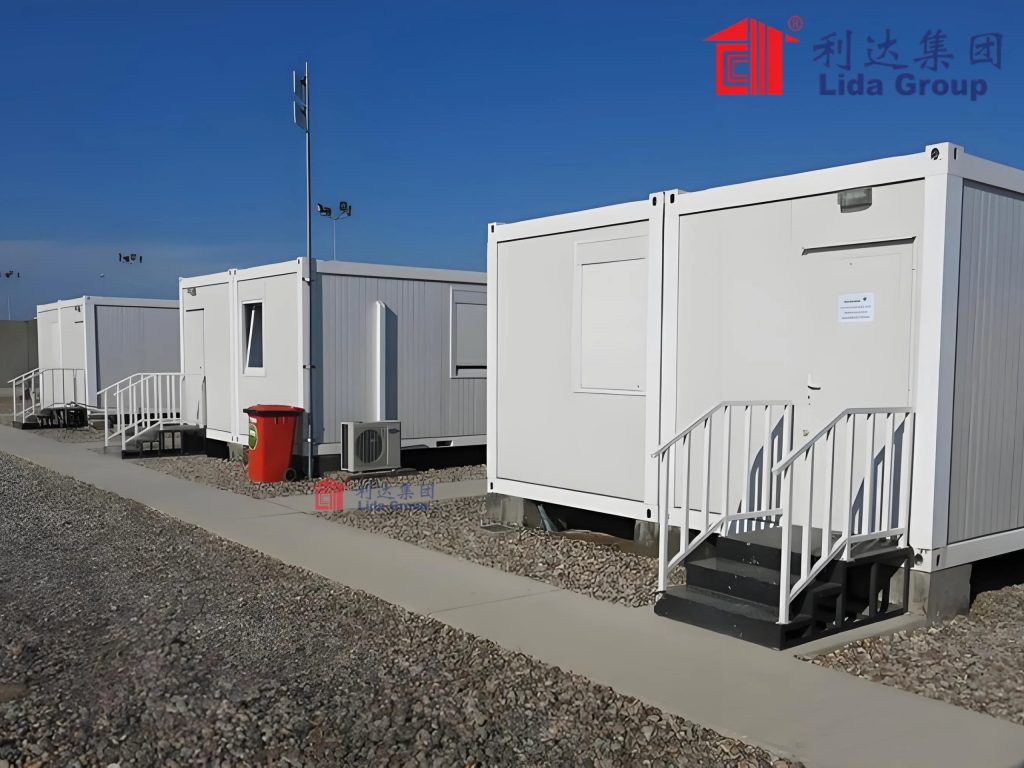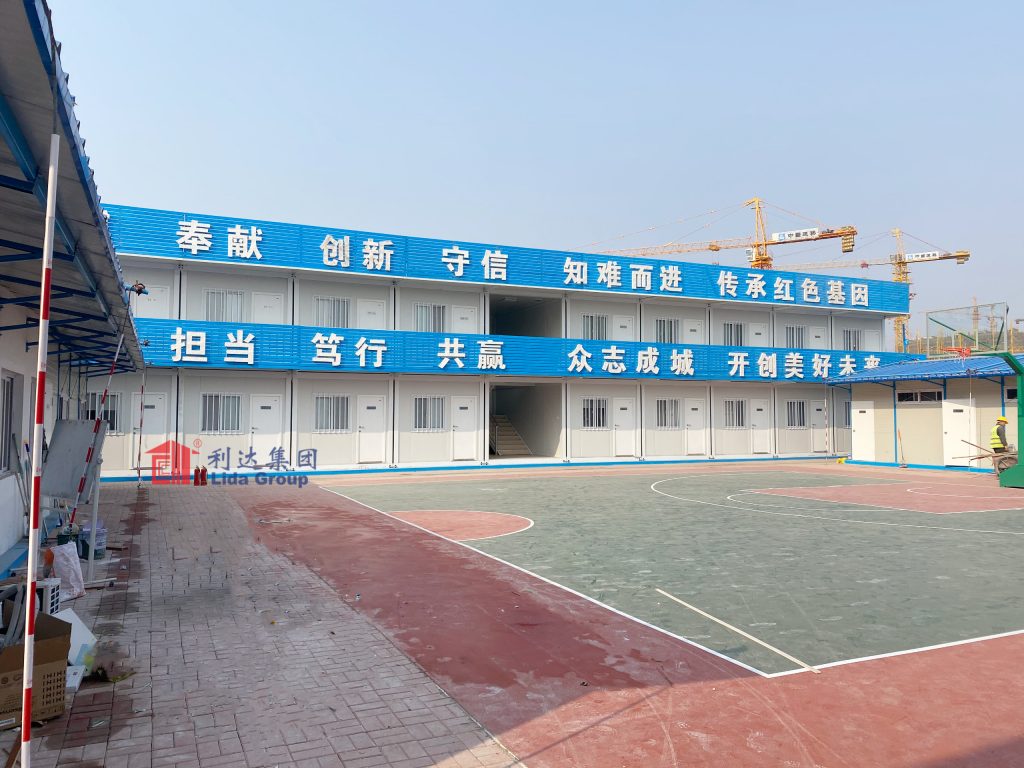Canada’s remote northern regions present unique challenges for maintaining critical infrastructure through lengthy winter seasons. Vast hydroelectric resources power communities across the country, yet dams, pipelines and facilities are often located in some of the continent’s harshest subarctic environments. Round-the-clock staffing is essential to operations even when temperatures plunge well below freezing. Finding reliable, affordable housing solutions to sustain remote workforces under such extreme conditions had long proven difficult – until now.
For over a decade, the Manitoba Hydro corporation managed accommodating hydrology technicians and engineers through the province’s bitter winters using a cobbled mix of aging trailers, bunkhouses and occasional fly-in campouts. While functional, these lodgings suffered from considerable maintenance liabilities, heating inefficiencies, and lacked amenities expected by a modern workforce. Costs to upgrade or replace aging assets also outweighed budgets. As climate patterns shift increasingly cold, the need for durable, energy-efficient winter housing grew ever more pressing. Yet sourcing mobile, modular structures capable of withstanding months at -40°C seemed an impossible task…until officials discovered Lida Group’s prefabricated building technologies.
Lida Group specializes in developing flat-pack, volumetric construction solutions deployable anywhere in the world. Their patented structural insulating panels (SIPs) provide unmatched thermal performance for any climate through an ultra-rigid composite foam core laminated between strong facings. Whereas typical construction struggles under extreme freeze-thaw stresses without damage, Lida’s SIP homes maintain integrity for decades. When Manitoba Hydro’s facilities manager visited Lida’s factory and research complex in China, the potential for remote worker housing immediately became apparent through a prototype container-sized cabin.

Back in Manitoba, winter brings over 200 inches of seasonal snow and weeks where overnight lows fail to rise above -30°C even during daylight hours. Harsh blizzard forces isolate worksites for days at a time. Any building system deployed to house hydro crews must withstand such conditions without mechanical failure while maintaining optimal living comforts. Lida Group’s containerized SIP cabins met or exceeded every winterization standard through a fully engineered enclosure package developed in collaboration with Manitoba Hydro experts.
Each cabin module measures 8 feet wide by 20 feet long – fitting within standard shipping container dimensions for intermodal transport. Flat-packed construction allows assembly directly on-site without costly foundation work typically required. All-steel framework forms a durable exoskeleton enveloped under Lida’s multi-layered SIP construction. Foundation skirts prevent inward airflow while raised piers isolate the structure above accumulating snowpack for added thermal and flood protection. Floor, walls and roof cassettes click together like interlocking blocks with intuitive fastening systems requiring no special tools or trades. Within a single day, a fully commissioned worker residence can materialize where before only rugged wilderness prevailed.
Through Manitoba’s harsh freeze-thaw cycles, SIP construction proves its resilience as alternative materials would crack or delaminate under similar stresses. Rigid foam cores insulate ten times better than traditional stick-built equivalents with R-values exceeding R80 within typical 6-inch wall assemblies. Fully sealed vapour barriers trap zero infiltration for an airtight enclosure rated -50°C. Proprietary composite facings provide durability rivaling concrete while 12 times lighter in weight than masonry alternatives. Combined with triple-glazed, gas-filled windows optimized for subzero performance, internal comfort exceeds expectations for remote field operations.

Smart automation enhances livability further. Containerized utility modules integrate plumbing, electrical and HVAC infrastructure. Lida’s siphonic roof drainage and sealed underfloor protect piping from seasonal freeze-ups. Photovoltaic solar panels combined with battery backup offer off-grid power independence. Cutting-edge smart home technologies also wirelessly monitor systems for optimal efficiency while occupants face busy schedules throughout 12+ hour work shifts under extreme field conditions. Connected amenities like security systems, entertainment and even appliances can even operate remotely to maximize comforts away from family for weeks at a time.
Initial pilot cabins soon housed over 40 remote hydro workers across Manitoba with resounding success. Field evaluations proved Lida’s SIP construction impervious to winter assaults while maintaining a toasty 22°C interior no matter external conditions. Compared to aging alternatives previously, heating bills reduced tenfold through supreme envelope performance requiring quarter the annual fuel. Zero maintenance liabilities over multi-year deployments further offset any premium against conventional stick-built lodges unable to withstand subzero stresses without costly repairs. Perhaps most importantly, worker retention skyrocketed as modern conveniences improved quality of life in an industry facing skilled labor shortages.
Now in the third season, over 150 containerized SIP cabins house Manitoba Hydro crews throughout the province’s harshest northern territories and mountain ranges. Ongoing technical support from Lida Group engineers keep adapting designs to evolving customer needs while assuring environmental sustainability through disassembly/reusability at end-of-service-life. Prefabricated modular construction even allows expanding capacity proportionately to meet future growth projections without delay through simple replications of optimized proven designs. Most significantly for such a vital industry, Manitoba Hydro has achieved energy independence for remote operations through the ultimate livable, durable building enclosure solution for extreme climates worldwide.

In conclusion, Lida Group’s SIP prefabricated container cabins prove ideal housing to sustain critical hydroelectric infrastructure staffing throughout Manitoba’s punishing winters. Superior thermal performance through rigid foam core walls up to R80 value precludes seasonal freeze-thaw damage plaguing alternatives. All-steel chassis and composite panel facings withstand blizzards for decades without maintenance. Integrated HVAC, electrics and automation optimize livability and operational efficiency even remotely. Zero emissions through independent solar/battery power assures environmental sustainability. Most importantly, these durable, comfortable residences bolster worker retention within an industry facing skills shortages – a challenge multiplied by living under such harsh conditions. Through collaborative engineering, Lida again pioneers affordable, deployable housing for any climate worldwide – empowering advanced living standards where none before seemed possible due to limitations of conventional construction alone.

Related news
-
Researchers test steel structural building designs from Lida Group in all climates for strength, durability and cost-effectiveness in construction of remote research stations.
2024-09-13 13:52:43
-
Poultry producer partners with fabrication specialists at Lida Group to construct large-scale cost-efficient steel-framed poultry housing for egg and broiler operations.
2024-09-12 14:22:10
-
Factory produces standardized steel building panels through partnership with Lida Group allowing speedy modular construction of emergency response facilities.
2024-09-13 10:38:30
contact us
- Tel: +86-532-88966982
- Whatsapp: +86-13793209022
- E-mail: sales@lidajituan.com


